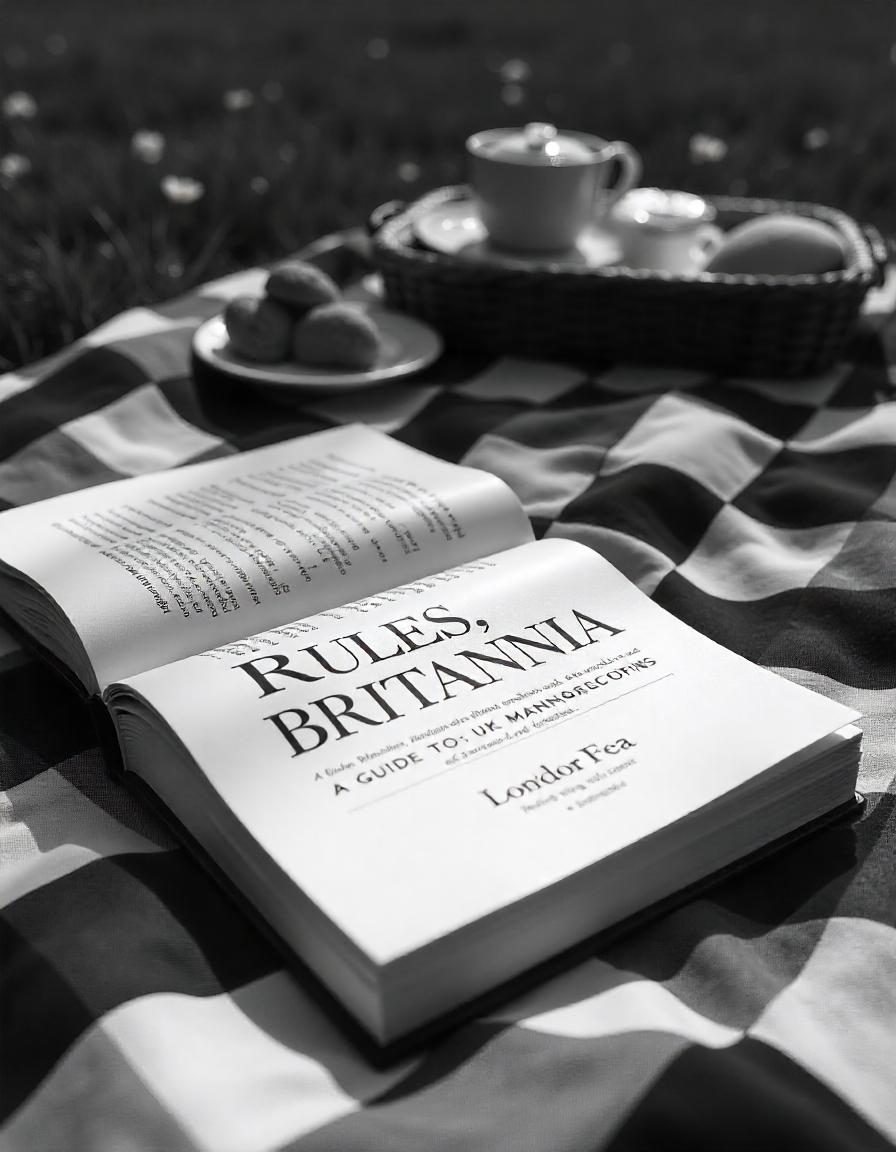Navigating British society can feel like stepping into a world of unspoken rules and charming quirks. The UK is known for its polite and understated culture, where subtle gestures often speak louder than words. If you’re looking to understand British manners and mannerisms, this guide will walk you through social customs, communication styles, and intriguing cultural habits that define life in the UK.
Politeness Is Paramount
Politeness is a hallmark of British culture. Courtesy is deeply ingrained, and small gestures of respect and consideration are appreciated in both social and professional settings.
Say “Please” and “Thank You”
Using polite phrases like “please,” “thank you,” and “excuse me” demonstrates good manners. Whether you’re buying something from a shop or asking for directions, these words foster positive interactions.
The Ubiquitous “Sorry”
Britons are famous for their frequent use of the word “sorry.” It’s not necessarily an admission of fault but more of a social lubricant to ease potential awkwardness. For instance, if someone brushes past you, they might say “sorry” even though it wasn’t their fault.
Patience in Queues (Lines)
Queuing is practically a national pastime. Whether you’re waiting for the bus, at a coffee shop, or in a post office, forming an orderly line is standard. Jumping the queue is considered highly rude, so always respect your place.
British Communication Styles
The way Britons communicate often reflects their preference for subtlety and diplomacy. Being mindful of these conversational traits can help you avoid misunderstandings.
Indirect Speech
Rather than being blunt, Britons may use indirect expressions. For example, a phrase like “That’s an interesting idea” might imply disagreement rather than approval. Listen carefully to tone and context to interpret meaning.
Small Talk Matters
Casual conversation, or “small talk,” is an essential part of British life. Expect to exchange pleasantries about the weather, weekend plans, or shared interests. These lighthearted chats are a friendly way to connect without venturing into heavy topics.
Humor and Sarcasm
British humor often involves wit, irony, and a sprinkling of sarcasm. Self-deprecating jokes are common, so don’t be surprised if someone gently pokes fun at themselves during a conversation. It’s all part of the charm.
Manners at the Table
Dining with Britons comes with its own set of standards. Understanding table manners will help you leave a great impression, whether you’re at a formal dinner or enjoying a casual meal at a friend’s home.
Table Etiquette
- Hold your fork in your left hand and knife in your right while eating.
- Wait until everyone is served before starting your meal.
- Avoid reaching across the table; instead, politely ask for someone to pass an item.
Tipping Etiquette
At restaurants, it’s customary to tip 10-15% of the bill if service is not included. For taxi drivers and hairdressers, small tips are appreciated but not obligatory.
Tea Time Traditions
Tea is almost a sacred ritual in the UK. If you’re invited for afternoon tea, allow your host to pour first. Milk is added after tea, unless you’re served the traditional loose-leaf brew in a pot with no strainer.
Everyday Social Customs
Greeting Others
Handshakes are the standard greeting in formal or first-time meetings. Among friends, a wave, friendly “Hi,” or quick hug might suffice. Always err on the side of formality unless you know the person well.
Respecting Personal Space
Physical boundaries are valued in Britain. Stand at a comfortable distance during conversations and avoid overly expressive gestures unless you’re in close company.
Being Punctual
Arriving on time is a sign of respect. Whether it’s a casual meet-up or a business meeting, being late can suggest poor planning or indifference.
Keep Your Volume Low
Loud voices, especially in enclosed public spaces like trains or cafes, are considered disruptive. Britons typically favor quieter conversations, respecting the shared environment.
Cultural Quirks and Gestures
The Two-Fingers Gesture
Be mindful when using hand signals. Displaying your palm outward with two fingers raised is fine, but the same gesture with the palm inward is offensive.
Eye Contact
Maintaining eye contact during conversations is polite and shows attentiveness. However, holding a gaze for too long can feel uncomfortable, so strike a balance.
Sense of Moderation
Exaggeration or overconfidence isn’t usually well-received. Humility, balance, and understatement are highly valued across both personal and professional interactions.
Respect for Diversity
The UK is a multicultural society where inclusivity is celebrated. Avoid making assumptions about someone’s background or preferences based on appearance or accent. When in doubt, ask politely or simply observe the behavior of those around you.
Final Words of Advice
Adapting to British social customs doesn’t require perfection; sincerity and a willingness to respect the local way of life go a long way. Whether you’re chatting at the pub, navigating public transport, or attending a formal dinner, displaying courtesy, attentiveness, and respect will help you engage smoothly.
By understanding the subtle art of British manners and mannerisms, you’ll feel more confident and comfortable in your interactions. Remember, it’s these small cultural nuances that make the UK a wonderfully unique place to explore and call home.

